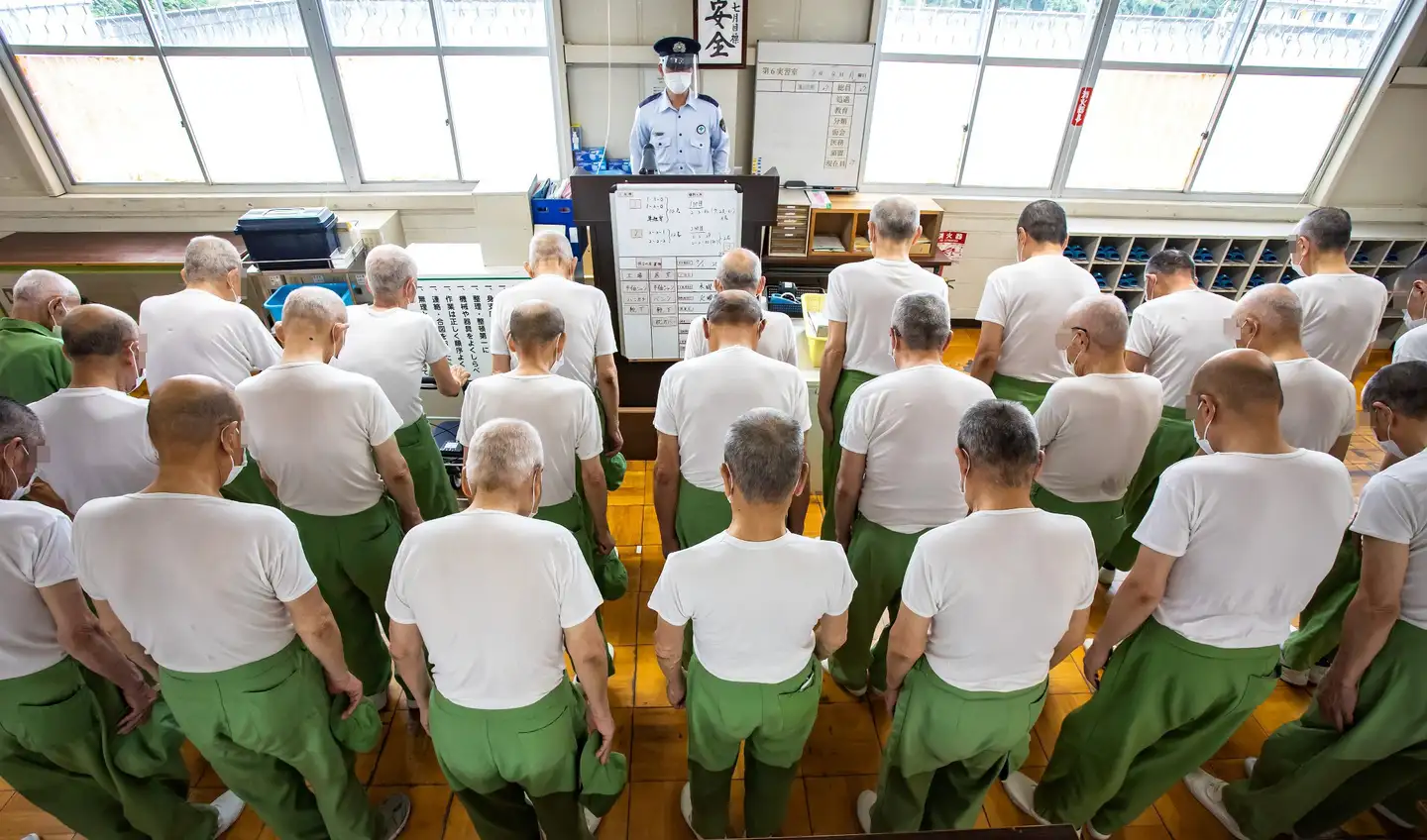The Rise of the “Kamimachi Shoujo” Phenomenon
Deep within the shadows of Japanese society exists a phenomenon known as "Kamimachi Shoujo," which translates to "girls waiting for God". This term, emerging around theturn of the 20th and 21st centuries, is unrelated to religious concepts likethe cultural role of miko (shrine maidens). Instead, it describes a particularreality within modern Japan.

The "God" in this context can be anyone. If you provide a homeless runaway girl (「家出少女」, meaning "runaway girl" in Japanese) with free food andaccommodation, you become their "God". These girls, carrying smallsuitcases or commuter bags, are without a place to go. They often register anonymous accounts on specific forums or websites, sometimes using fabricated elderly ages, stating their location, and posting requests for a"God" to provide free hospitality. Those who respond are typically men, referred to as 「泊め男」 or "tomeo".
Beyond Enjo Kōsai: New Expectations and Power Dynamics
A natural question arises for those familiar with Japanese culture: how does this differ from the "compensated dating" (援助交際, enjo kōsai) common in the sex industry, which involves selling sexual services? The source material highlights a key distinction. Since the girls are asking for a "God," they expect selfless devotion, often explicitly stating on the websites that they do not accept any sexual transactions.

Driven by this very question, a Japanese man named Kurobane Yukihiro conducted one-on-one interviews to investigate the actual conditions surrounding Kamimachi Shoujo. His findings were published in the 2010 book, Kamimachi Shoujo. As described in the book, traditional compensated dating involved a seemingly equal relationship: one person offered their body, and the other paid money. In contrast, Kamimachi Shoujo do not provide anything themselves but demand free food and lodging. This represents a different, new kind of value system, viewed by the author as "lazy and despised behavior".
Prior to his formal investigation, the author admittedly criticized the behavior of Kamimachi Shoujo based on his initial assumptions. However, his perspective evolved significantly after the investigation.
Who Are the Kamimachi Shoujo? Social Roots of Disappearance
Beyond carrying the label of 「家出」 (runaway), who are these girls? Runaway or missing persons cases have consistently been a challenge for the Japanese police. The National Police Agency publishes data annually, but this only reflects reported cases; the actual numbers are certainly higher. Those familiar with Japan might have seen missing person posters displayed by families on street bulletin boards. Since 2005, the number of cases has decreased slightly, with the number of runaways stabilizing around 80,000. However, at the turn of the 21st century, this number peaked, exceeding 100,000. Of these, approximately one-quarter are aged 10-19, indicating that the number of adolescents leaving home is considerable.

As a subset of "runaway girls," Kamimachi Shoujo often come from difficult family backgrounds. Family reasons include parental divorce, domestic violence (abuse), and oneparent being an alcoholic. Some girls have even been told directly by a drunken mother, "If only I hadn't given birth to you, I wouldn't be living this miserable life". Unable to find warmth in their original families, they enter society and become seen by others as "makeinu" (「負け犬」, meaning "losers"). One Kamimachi Shoujo told interviewer that she could feel the contempt in the eyes of her "God" when he looked at her. Tragically, some Kamimachi Shoujo developed severe depression during their time on the streets and committed suicide. When no "Gods" take them in, they are forced to stay in places like McDonald's, internet cafes, or manga cafes. They are sometimes referred to as "McDonald's refugees" or are left to spend the night squeezed into small cubicles.
Invisible Girls, Silent Cries: Social Failure and Public Blindness
Kurobane's investigation led him to realize that his initial thought that "Kamimachi Shoujo's behavior is very bad" was too simplistic. He concluded that rather than criticizing the problematic values of this group, society should focus on how to address the negative consequences that unfortunate original families have on children. Efforts should also be directed towards handling and improving the issues faced by the runaway population, given that most girls forced into "Kamimachi" situations are the biggest victims of social problems.

Revisions to Japan's Act on Control and Improvement of Amusement Businesses have caused a decline in business for many adult entertainment establishments. Some runaway girls who previously relied on this industry to survive have been forced underground to continue their difficult existence. Kurobane encountered women who had "transitioned" from the sex industry to become Kamimachi Shoujo. Such measures, according to the source, merely block the flow of water rather than fixing the source.
Belonging, Violence, and the Hidden Web of Risk
A 17-year-old girl working as a hostess at an adult entertainment club confided in Kurobane. She stated, "When I posted on the website as a Kamimachi Shoujo and received many replies, I found value in living". Other Kamimachi Shoujo have reported that through this method of communicating with others, they gained a sense of belonging and confirmed their reasons for existing.
However, the "Gods" these girls view as salvation are often not as innocent as people might imagine. Kurobane's investigation revealed that the vast majority of these men are also considered "losers" by conventional standards. Consequently, instances of violence occurring concurrently with the provision of free hospitality to Kamimachi girls are not uncommon.
When this practice is labelled "Kamimachi," it becomes normalized in people's minds even though it is often hidden. Websites that allow these "Kamimachi" posts effectively become breeding grounds for potential criminal risks.
How can these regrettable social risks be resolved?. Discussions about Kamimachi Shoujo, runaway girls, and child abuse are enduring topics within Japanese sociology. These issues are closely tied to welfare. Some people also argue that relaxed education is a cause of these social phenomena, leading young people to pursue gain without labor and abandon competition.
Related Articles
You may also like...
International Hostess Bar Since 1993
夢
ORIGIN
・ International Hostess Bar since 1993
・ Japanese Hospitality with International Service
・ Diverse and Charming Floor Ladies
・Located in Shinjuku, Tokyo
・Transparent Pricing
・Easy Online Reservations




















